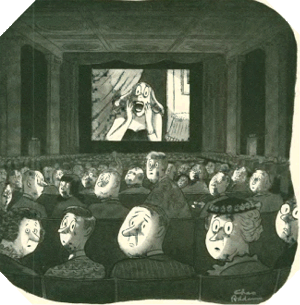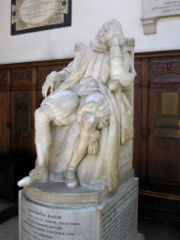
Death: Yet you do not want to die.
Confessor: Yes I do.
Death: What are you waiting for?
Confessor: Knowledge.
Death: A guarantee?
Confessor: Call it what you will.Is it so hard to conceive god with one’s senses?
Why must he hide in the midst of vague promises and invisible miracles?
How are we to believe the believers when we don’t believe ourselves?
What will become of us who want to believe, but cannot?
And what of those who neither will nor can believe?
Why can’t I kill god within me?
Why does he go on living in a painful and humiliating way … a mocking reality which I cannot get rid of?
... excerpt from the movie "The Seventh Seal", Ingmar Bergman (1918-2007), director & writer. When asked about this scene in an interview late in life, Bergman commented:
"I was afraid of this enormous emptiness. But my personal view now is that when we die, we die and we go from a state of something to a state of absolute nothingness ... and I don't believe for a second that there is anything above or beyond, or anything like that ... and this makes me enormously secure."




































